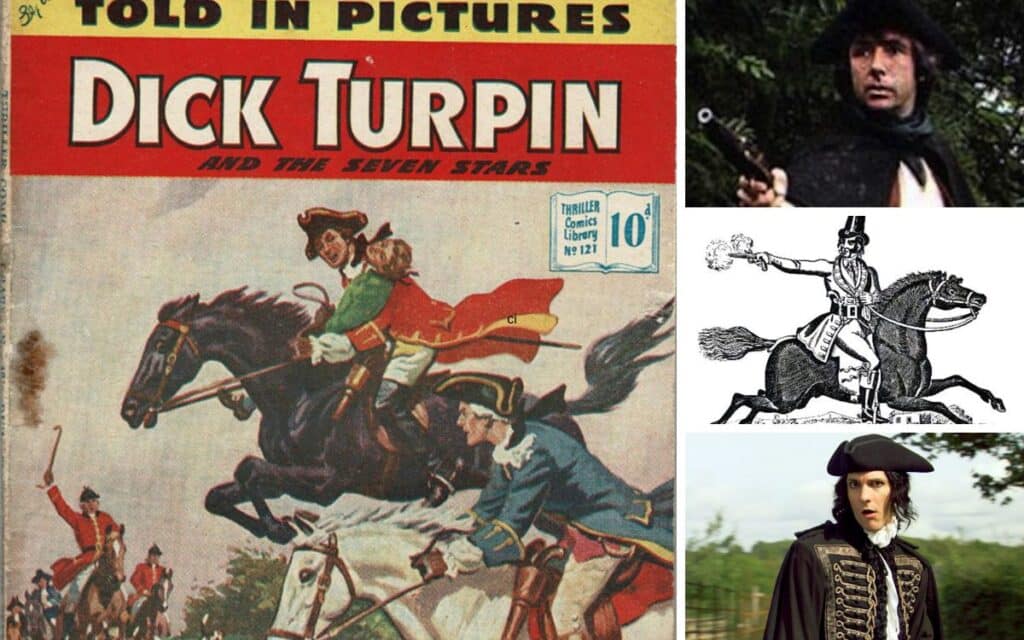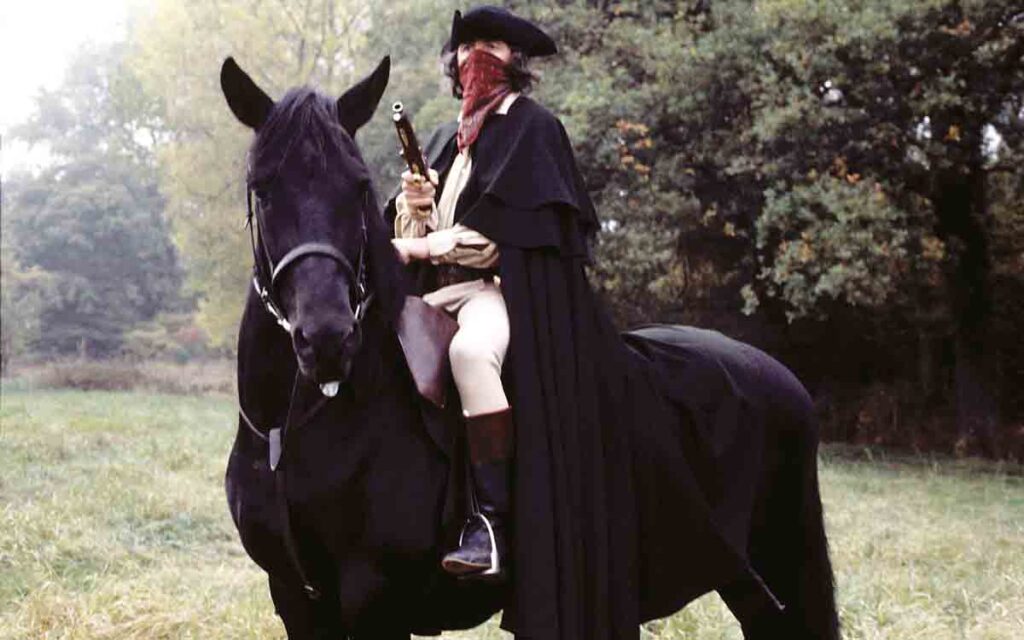Let’s dive into 10 lesser-known Dick Turpin facts about England’s most famous highwayman, demystifying the man behind the legend.

10 Dick Turpin Facts
The Butcher Beginnings: From Chop Shop to Crime
Yes, you heard it right. Turpin’s life of crime didn’t start on horseback or robbing stagecoaches. He was born into an ordinary family in Hempstead, Essex, and was trained as a butcher. However, in his early 20s, he was implicated in stealing two oxen, marking the beginning of his criminal career. From there, it was a slippery slope to becoming a full-fledged outlaw.
A Man of Many Aliases, The Many Faces of Turpin
Turpin was not just a master of evasion, but also a master of disguise. He used several pseudonyms throughout his criminal career to throw off authorities. His most notable alias was “John Palmer”, a seemingly harmless horse trader from Yorkshire. The truth of his identity only unraveled when a letter he’d written to his brother-in-law fell into the hands of the authorities.
Not a Lone Wolf, The Gang Life of Turpin
The romanticised image of Turpin as a lone, gallant highwayman is quite far from the truth. For a significant part of his criminal career, Turpin was part of the notorious “Gregory Gang” or the “Essex Gang”. This band of outlaws was known for their brutal robberies, which included home invasions and even torturing homeowners until they gave up their valuables.
Black Bess, The Horse That Never Was
Everyone knows the tale of Black Bess, Turpin’s loyal horse, right? Well, it might be a hard pill to swallow, but Black Bess was a figment of literary imagination. She was brought to life in the pages of a Victorian-era novel by William Harrison Ainsworth, over a century after Turpin’s death.
The Longest Ride Was A Mythical Journey
Ainsworth’s novel also introduced the thrilling tale of Turpin’s epic 200-mile overnight ride from London to York, which in reality, was likely undertaken by another highwayman, John Nevison. This legendary feat, though attributed to Turpin, does not have any substantial historical evidence backing it up.

From Notorious to Infamous, The Posthumous Fame of Turpin
While Turpin was infamous in his locality during his lifetime, his notoriety as a romantic highwayman exploded after his death. The Victorian literature of the 19th century and later TV shows and movies have painted a much more glamorous image of Turpin than the historical records suggest.
His Final Act, A Grandstanding End
Turpin’s death was as dramatic as his fictionalised life. On being sentenced to death, he didn’t wait for the hangman to do his job. Instead, he took control of the final act himself. Decked out in a new frock coat and shoes, and having hired professional mourners, he jumped from the ladder, effectively hanging himself.
The Elusive Grave of Turpin
In 2009, a fascinating archaeological find at the site of York’s gallows led to claims that Turpin’s skeleton had been unearthed. Unfortunately, the bones were later identified as those of a woman, and the final resting place of the notorious highwayman remains a mystery.
The Dark Reality Behind the Charm
Despite the romantic portrayals, Turpin was far from a charming rogue. His crimes were violent, brutal, and terrifying. The ‘gentleman highwayman’ image is largely a later invention, far removed from the reality of Turpin’s actions.
Turpin’s Everlasting Imprint on Popular Culture
Despite the dark truths of his life, Turpin’s legend lives on in popular culture. His life and exploits have inspired numerous books, films and television shows over the years. The enduring fascination with Turpin’s story is evident even in modern times – there’s a British rock band named after him, called Dick Turpin.
You can read more about the Dark Truth about Dick Turpin on Spooky Isles





